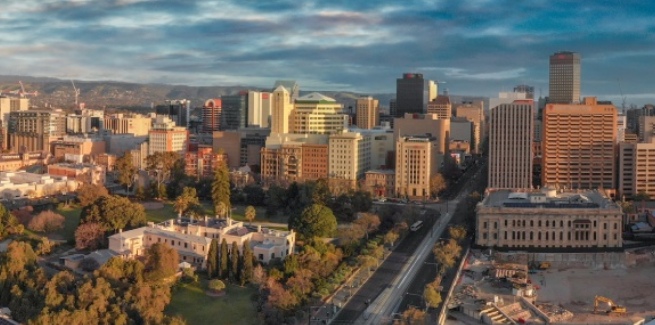Research conducted by the University of South Australia and community housing provider Believe Housing Australia has included findings from a survey on housing and data around homelessness.
The report survey was conducted through local news outlet InDaily in March, finding 95 per cent of people fear for the future of those locked out of the housing market.
A vast majority (95 per cent) of the participants, who were mostly based in Adelaide, knew someone who was struggling in the housing market and 84 per cent were worried about the impact of housing availability on their local community.
Around 92 per cent said they were concerned about homelessness in Adelaide and other parts of South Australia.
The majority (93 per cent) also said there was not sufficient affordable housing in the state.
Three-fifths (60 per cent) said they thought everyone should be able to own their own home.
Michelle Gegenhuber, executive general manager at Believe Housing Australia commented that the results have shown there is “strong community appetite for change”.
“Our survey data shows that South Australians are feeling heavily impacted by the housing crisis and don’t think enough is being done,” she said.
“A number of factors have contributed to the soaring levels of homelessness and housing demand we are seeing across the state.
“Low rent affordability and availability, low incomes, a skyrocketing property market and the effects of COVID-19 have all played their part in creating a perfect storm of high need and low supply.”
According to the report by Helen Dinmore and Debbie Faulkner from the University of South Australia, past government policies and a rampant housing market have resulted in more than 6,000 people experiencing homelessness each night in South Australia.
They have also pointed to there being more than 30,000 people on South Australia’s social housing waiting list.
Around 85 per cent of respondents in the survey said there should be some social housing included in new residential developments in South Australia, while 86 per cent said the state government does not provide enough housing for vulnerable people.
“With secure employment increasingly hard to find, vulnerable groups like older people, low-income earners, First Nations peoples, youth, and people with illness or disability, are finding themselves forced into homelessness,” Ms Gegenhuber said.
“We need a coordinated, focused response across government and multiple sectors. Everyone is already working as hard as they can, but the impacts will always fall short while we work within a failing system.
“We know that when people are securely housed, savings through increased social participation and reduced service use far outweigh the cost of investment.”
The report also found rental availability and affordability were at a record low across the country.
Andrew Beer, professor and business executive dean at University of Australia commented rental availability is at its worst in South Australia, where vacancy rates hit 0.2 per cent in March.
“It’s evident that responses to the housing crisis must provide tailored solutions to high-risk cohorts with specific need,” he said.
“Investment in housing for all delivers community-wide social and economic benefits on a wide range of measures including health, employment and education.”
Believe Housing Australia is set to host roundtables through the rest of the year, with government and sector representatives.
Its aim is to develop strategies and actions that will deliver an “efficient multi-provider housing system for the SA community”.
[Related: Consumers bracing for ‘steep’ rate rises: Westpac]

